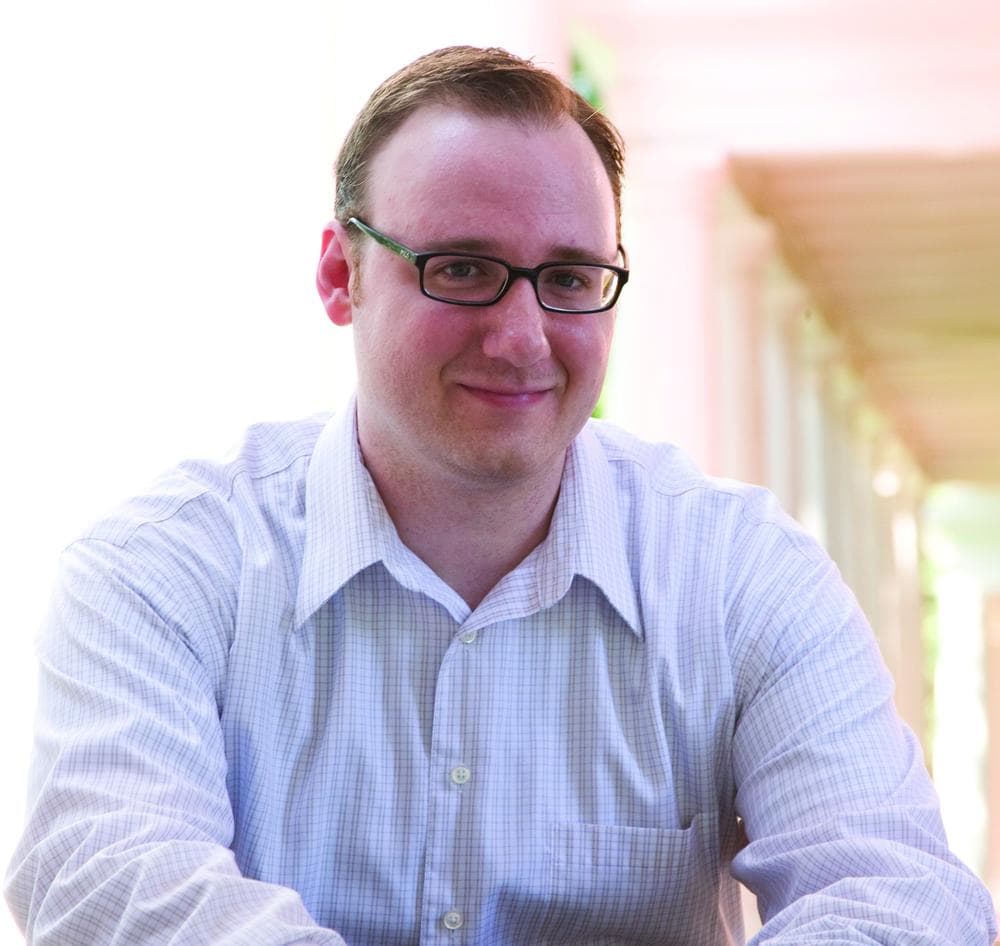Advertisement
Book Excerpt: Nothing Left To Burn
 When Jay Varner decided to work as a reporter covering fires in his hometown of McVeytown, Pennsylvania, he knew he'd be constantly reminded of his family's complicated history with fire: Jay's father had been the fire chief and a local hero, but his grandfather had been jailed for arson. Jay writes about his family in a new memoir, "Nothing Left to Burn," excerpted below.
When Jay Varner decided to work as a reporter covering fires in his hometown of McVeytown, Pennsylvania, he knew he'd be constantly reminded of his family's complicated history with fire: Jay's father had been the fire chief and a local hero, but his grandfather had been jailed for arson. Jay writes about his family in a new memoir, "Nothing Left to Burn," excerpted below.Listen to our interview with Jay Varner
More Here & Now book excerpts
My grandfather Lucky drove to our trailer every Saturday morning, his silver and maroon Chevrolet pickup loaded with garbage bags piled so high they nearly spilled over the sides. Sometimes the junk was the accumulation of a week’s worth of trash from my grandparents’ apartment or the old hotel they owned. Or else the truck was full of the unwanted tires, boxes, and newspapers that Lucky offered to dispose of for his friends. I started watching Lucky’s Saturday morning ritual when I was five years old.
Each week I parted the white curtains in our living room window and saw Lucky slowly back his truck up to the edge of a sunken pit, actually the basement of the first house my father had lived in as a child — it sat thirty yards from our trailer and was now filled with brick, cinder blocks, ragged chunks of cement, and junk too rusted to even identify. My mother and I called that spot “the hole.”
With a toothpick always plugged in his mouth, Lucky opened the door of the truck and stepped out. He was usually dressed in a white T-shirt, paint-splotched green worker’s pants, and scuffed-up leather boots, so cracked they looked as if he had just stomped the entire width of Pennsylvania. Every Saturday he walked across our yard with a hardened and dogged gait, ready to banish anything that stood in his path, and circled the crumbling cinder-block walls of yet another house my father had once lived in with his family. What was left of that building stood five yards north of our trailer and resembled ruins from a war movie.
Lucky stored his caged pigeons inside the damp walls of that second house. I hated those birds. Every time I walked past the building’s broken windows, the reveille of coos and fluttering wings spooked me and I feared the birds would somehow burst from the blackness and peck at my face, just like in the Hitchcock movie my mother never let me finish watching on television.
But Lucky loved his pigeons. One winter, he plugged lamps and space heaters into our trailer to warm them, stringing orange extension cords across our yard and inflating our electric bill. He never offered to pay his share.
“We can’t afford this,” my mother told my dad, waving the bill in front of his face. “What’s more important to you, paying to heat your father’s pigeons or keeping your family warm?”

My dad must have talked to him because Lucky removed the lamps and heaters without ever saying a word.
But the pigeons weren’t alone inside those walls. Rats inhabited the structure too. Sometimes they burrowed under our trailer only to die near the heating vents. When the furnace kicked on, the rats roasted, and the smell sifted through our kitchen and living room. After my mother once complained, Lucky set traps to catch them.
On one Saturday morning, I watched as he emerged from behind the cinder-block wall, holding a bunch of rats by their long, swinging tails. He walked back to his truck and laid the carcasses on the silver bumper.
Then, Lucky lowered the tailgate, stepped up onto the truck, and tossed the black bags of garbage into the hole. Climbing back down, he lifted a five-gallon can of gasoline from the bed, and doused the junk with gasoline. When the can was nearly empty, he stepped back from the pile and poured a trail of gas for five or so feet leading from the pit. He grabbed a handful of rats off the truck, and with a flick of his wrist he swung them like lassoes and tossed them into the pit. Next, he lit a match and dropped it to the ground. Flames rose on the path he had poured and then rushed into the garbage, exploding into a wall of fire that flashed up toward the sky. The blaze wheezed a breath of air before releasing a tremendous bang, a sound as loud as my father’s hunting rifle, so thunderous that a neighbor some eighty yards away once told my mother that every Saturday morning she could hear the flare-up from inside her house.
Lucky stepped back from the fire, though he still stood so close that he could probably feel the burn of the heat inside his lungs, and pulled a white hankie from his pocket, patted his bald head, and then swabbed at the back of his hairy neck. He cocked his head like a dog, listening intently, as though the crackle and pop of the flames sounded like a melody to him. He stood with his arms crossed and stared at his fire, never moving until the last flame died out.
© 2010 by Jay Varner. Published by Algonquin Books of Chapel Hill.
This program aired on November 12, 2010. The audio for this program is not available.